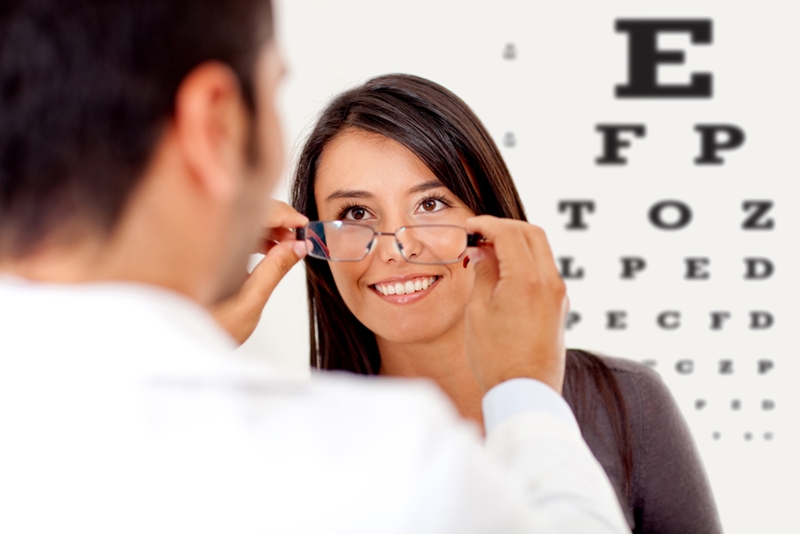May is Vision Health Month across Canada, a time for medical professionals to help alert the public of the steps they can take to preserve their sight. About 500,000 Canadians live with vision loss, according to the Canadian National Institute for the Blind. While some people are born with blindness or diminished vision capabilities, more than 5 million people are living with eye diseases that could impact sight and lead to some level of vision loss in the future. As a result, the CNIB estimates that the number of Canadians living with vision loss will increase by 30 per cent in the next 10 years.
It's important for people to regularly monitor their eye health and take precautions in their daily lives to ensure they can keep their vision intact for years to come.
The importance of eye exams
One of the best things you can do to protect your vision is to get eye exams, according to CNIB. Up to 75 per cent of vision loss can be prevented, so long as degenerative eye diseases like diabetic retinopathy and glaucoma are treated before eyesight is impacted. The earlier these conditions are caught, the more effective treatment will be, so it's important you get your eyes checked to look for the warning signs of disease.
For adults with low risk factors for eye problems, test can be done as little as every five to 10 years, according to Canadian Ophthalmological Society. High-risk patients, on the other hand, should plan to get their vision tested every one to three years. If you experience any kind of change to your vision or there are physical changes to your eyes themselves, you should immediately reach out to your doctor for an exam.
It's not just adults who need to have their eyes checked, either. CBC News reported that children should get their first eye exam when they are six months old to catch any early warning signs of eye disease or to correct vision problems. They should also have their eyes checked around age 3 to ensure they have the right equipment they need before starting school.
 Catching vision loss or eye disease early is your best bet for treating it.
Catching vision loss or eye disease early is your best bet for treating it.
How to protect your eyes
While your doctor can help treat any eye disease you may develop, there are plenty of things you can do on your own to preserve your vision.
The CNIB emphasized the need to use protective eyewear. If you're working on any kind of construction project, handling chemicals or participating in certain sports, you'll need to wear goggles or other designated eyewear to prevent injury. You can also protect your eyes by wearing UV-blocking sunglasses whenever you are out during the day. Remember that UV rays are damaging to eyes and are still present even if the sun is obscured by thin layers of clouds.
The source also recommended incorporating foods into your meal plans that are good for eye health. Carrots, oranges and peppers are rich in Vitamin C and beta-carotenes, while oily fish like salmon and mackerel contain Omega-3 fatty acids, important elements for keeping eyes strong and safe.
"UV rays are damaging to eyes."
You can also protect your family's vision by limiting screen time in your home. Spending too much time staring at computer screens, smartphones and televisions can strain eyes and weaken sight over time. Be sure to mix up everyone's activities so they aren't relying on brightly-lit devices to stay entertained all weekend long or when everyone gets home from school and work.
If you wear contacts or glasses, protecting your eyes means using your equipment properly:
- Wash reusable contacts and replace them on schedule.
- Don't sleep in contacts unless they were specially made to allow you to.
- Only use approved disinfectants to clean your contacts.
- Update your prescription for glasses and contacts as necessary.
- Follow your doctor's schedule for when to retest your vision.
You should always wash your hands before handling your contacts, and before touching your eyes for any other reason as well.
If you have questions about your eye quality, or it's been a long time since you've last had a comprehensive eye exam, be sure to reach out to your doctor and schedule a check up - you could be saving your eyesight for years to come.